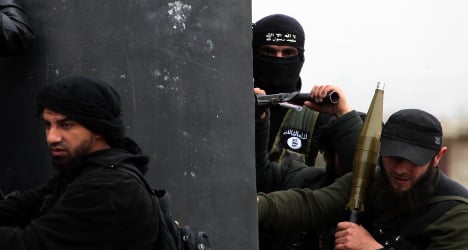A French court sentenced four men to up to seven years in jail on Monday for having tried to wage jihad abroad, at a time of concern over the mounting number of nationals going to fight in Syria.
The four were accused of having tried — and failed — to reach jihadist hotspots in 2009 and 2010 and of having facilitated the departure to a zone on the border between Afghanistan and Pakistan of two other Frenchmen who were later killed in a US army raid.
Ibrahim Ouattara, 26, one of the accused and the leader of the group, was sentenced to seven years in prison. Of Malian origin, Ouattara converted to Islam when he was 16 and later attempted on several occasions to join jihadists in Pakistan, Afghanistan or Somalia, without ever managing to do so.
In the Pakistani city of Peshawar, for instance, he asked to be taken to a madrassa, according to one of his testimony in court last month.
"I was brought to a mosque, but I was phoning my wife in France and it annoyed them. They chased me away," he said. "Another mosque said I couldn't stay as I was black. Have you been to Peshawar? When you're black, everyone looks at you."
He also tried to reach the Somali Al-Shebab militant group, which has links to Al-Qaeda, via Egypt and Sudan.
"Egyptian police arrested and tortured me, before deporting me to France", he said.
Another member of the group was also jailed for seven years, and two co-defendants were sentenced to four and five years in prison.
The court case came amid mounting concerns over the number of young jihadists heading to fight in Syria, whom authorities fear could pose a major security threat if they return home as battle-hardened veterans.
According to Interior Minister Manuel Valls, as many as 700 French nationals could have joined the fighting in Syria.
France is also still haunted by gunman Mohamed Merah, who killed seven people in a 2012 shooting spree in the southwestern city of Toulouse.
Since Merah was shot in a police siege, it has emerged that he had visited Pakistan and Afghanistan prior to his attacks and had been on the radar of French intelligence, who had gravely underestimated the threat he posed.



 Please whitelist us to continue reading.
Please whitelist us to continue reading.
Member comments